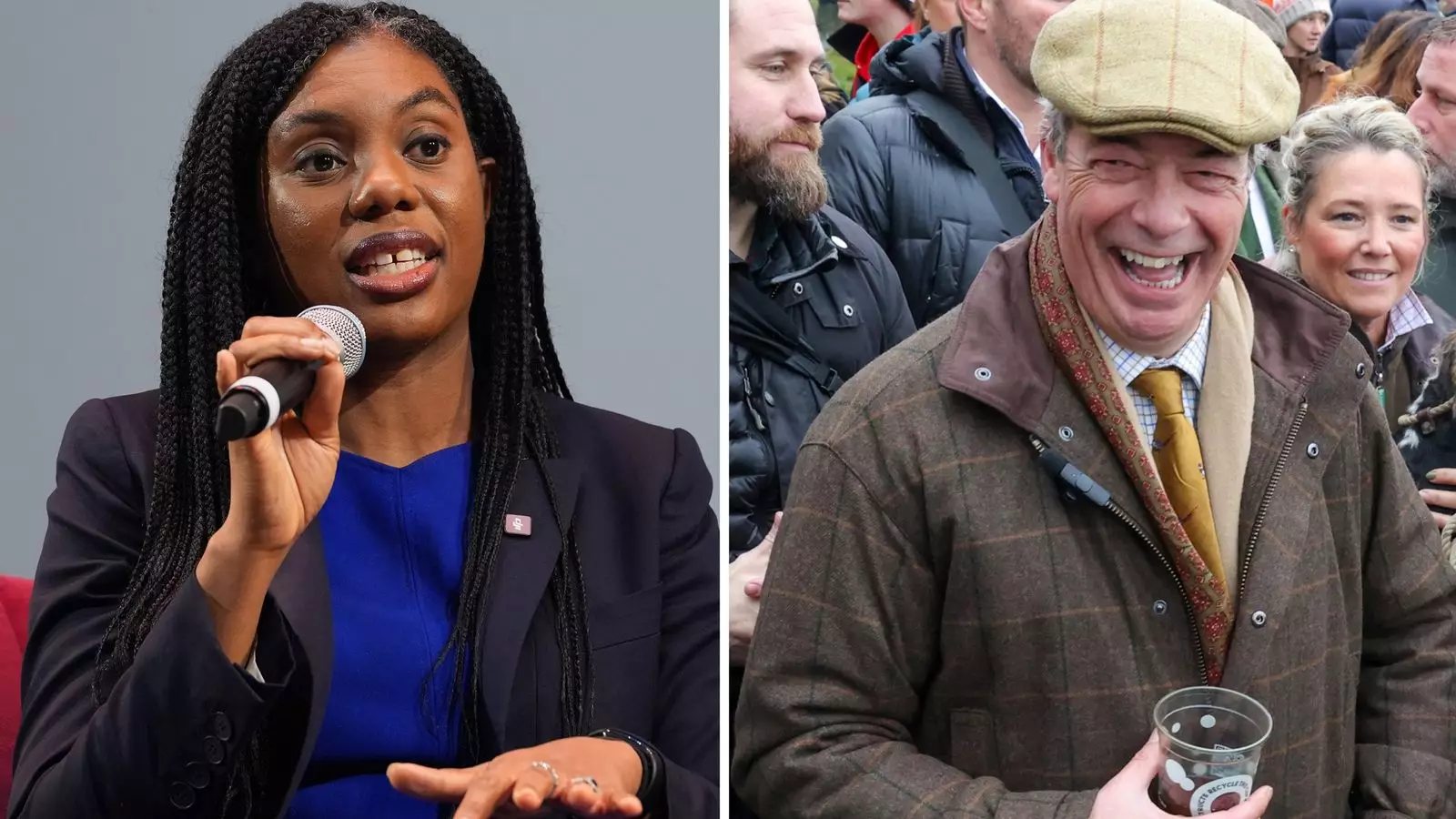The political landscape in the United Kingdom is experiencing a significant transformation with the emergence of Reform UK, a party that now claims to have surpassed the Conservative Party in membership. This claim has far-reaching implications for Britain’s political arena, particularly in the context of the Conservative Party’s declining numbers and leadership challenges. Nigel Farage, the party leader, proudly declared this achievement, dubbing Reform UK the “real opposition.” However, this bold assertion has sparked controversy and debate, particularly from Conservative leader Kemi Badenoch, who characterized these membership figures as misleading.
The digital membership counter on Reform UK’s website purportedly indicated that the party had amassed over 131,690 members, surpassing the Conservative Party’s declared numbers prior to its leadership election. This milestone is being heralded by Farage and his supporters as a “historic moment,” fundamentally changing the dynamics of British politics. In stark contrast, Badenoch disputed these figures, implying they were inflated and encouraging skepticism about their credibility. She suggested that the numbers may have been manipulated, referring to an automated process that could artificially enhance membership data.
Badenoch’s pointed critique not only undermines the legitimacy of Reform UK’s claims but also reflects the tensions within the Conservative Party as it grapples with its identity and base. The situation raises questions about transparency and accountability within political organizations, particularly when membership numbers can be weaponized in political discourse.
Reform UK’s leadership wasted no time in responding to Badenoch’s accusations, with both Farage and party chairman Zia Yusuf emphasizing the significance of their membership growth. Yusuf went further by inviting an independent audit of their membership numbers, a move positioned as a challenge to the Conservative Party to demonstrate their own figures. This exchange reflects a broader struggle not just for numbers but for legitimacy and public perception in a rapidly changing political environment.
Underlying these membership controversies is the fact that the Conservative Party is facing a significant decline in numbers, as evidenced by their lowest recorded membership since 2022, which has implications for their influence and electoral success. With the Conservatives’ membership base dwindling, questions arise about their ability to sustain voter support and fend off challenges from emerging parties like Reform UK.
The growing prominence of Reform UK is not just a reflection of internal Conservative struggles but suggests a shift in voter sentiment. As more individuals gravitate towards Reform UK, the party has positioned itself as a viable alternative for right-leaning voters disillusioned by the Conservatives. The rhetoric employed by Farage and his team, including claims of a historical shift breaking the “centuries-long stranglehold” of the Conservatives, highlights a strategic move to capture a dissatisfied electorate.
Moreover, the political winds are shifting as both parties re-evaluate their platforms and engagement strategies. Reform UK’s emergence indicates a potential fragmentation of the traditional vote, which could have profound repercussions in upcoming elections. Voters are increasingly looking for alternatives that resonate with their views on issues ranging from economic management to social policies.
The conflict between Reform UK and the Conservative Party illustrates a pivotal moment in British politics. As Farage celebrates what he perceives to be a monumental achievement in membership numbers, the integrity of those figures is brought into question, sparking a broader conversation about political legitimacy. With the Conservatives facing an identity crisis and the increasing allure of Reform UK, the stage is set for a fierce competition that could redefine the British political landscape.
The dynamic between these two parties will undoubtedly be pivotal in shaping the future of parliamentary representation and governance in the UK. As voters continue to seek authenticity and effective leadership, the ramifications of this political narrative will extend far beyond mere membership numbers—potentially influencing the very fabric of political discourse in Britain for years to come.

